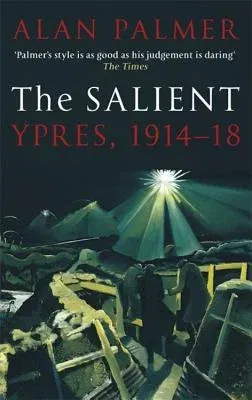Alan Palmer
(Author)The SalientPaperback, 11 July 2017

Qty
1
Turbo
Ships in 2 - 3 days
In Stock
Free Delivery
Cash on Delivery
15 Days
Free Returns
Secure Checkout

Print Length
288 pages
Language
English
Publisher
Constable & Robinson
Date Published
11 Jul 2017
ISBN-10
1472124804
ISBN-13
9781472124807
Description
Product Details
Author:
Book Format:
Paperback
Country of Origin:
US
Date Published:
11 July 2017
Dimensions:
19.56 x
12.45 x
2.29 cm
Genre:
1900-1919
ISBN-10:
1472124804
ISBN-13:
9781472124807
Language:
English
Pages:
288
Publisher:
Weight:
199.58 gm